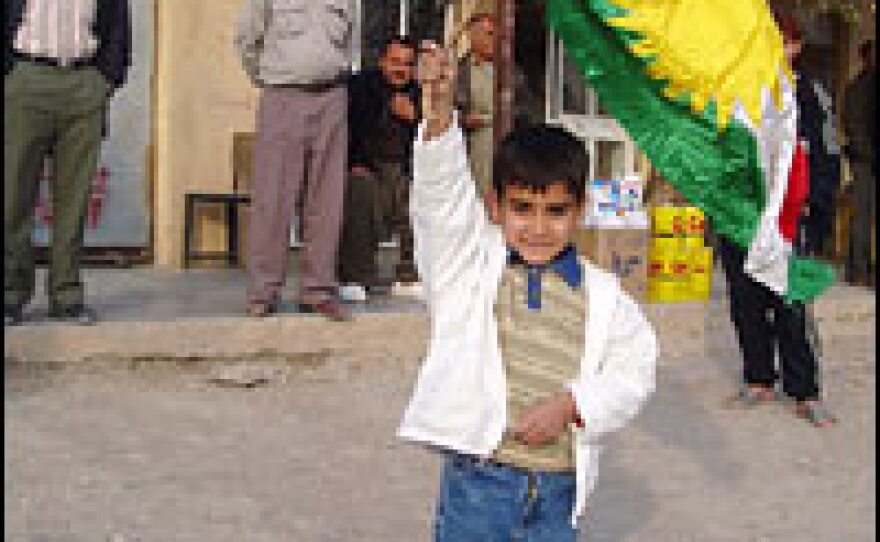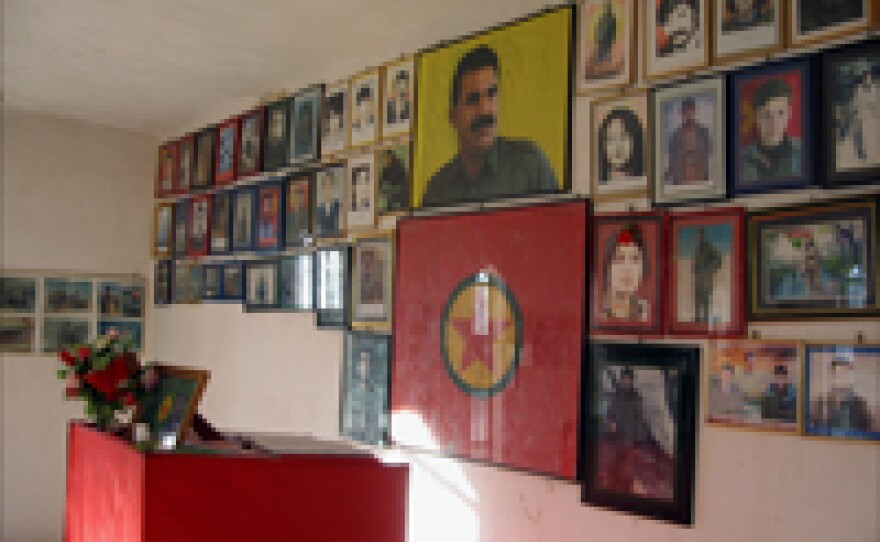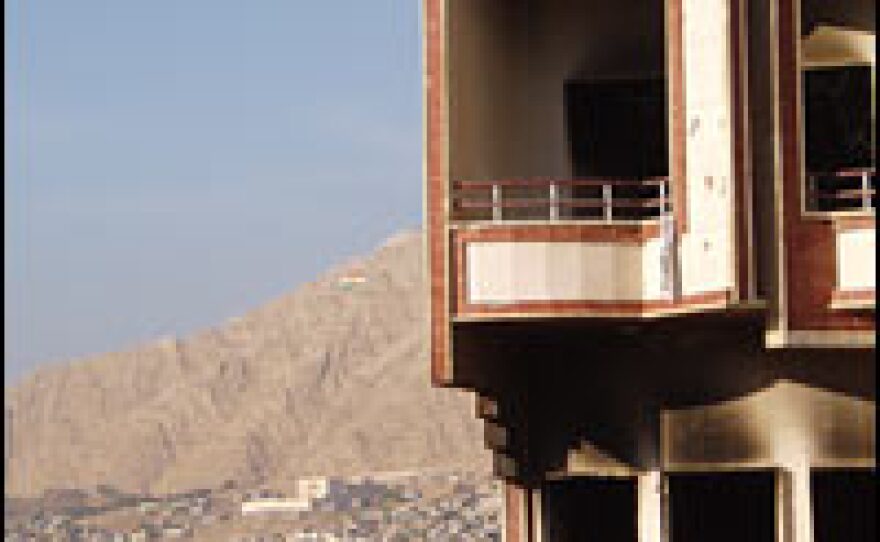


Turkey on Friday announced the withdrawal of thousands of its troops from neighboring Iraq, where they had been battling Kurdish separatist rebels for more then a week. The Kurds are frequently described as the world's largest ethnic group without a country of their own. Ivan Watson reflects on the Kurds' long and bloody quest for statehood.
A year or two ago, while sharing a dinner of lemon barbeque chicken under a full moon in the Iraqi Kurdish city of Suleymaniye, I watched a fistfight almost break out between an Iraqi Kurdish journalist and an Arab interpreter from Baghdad.
It started when the Kurd mentioned that he noted down "Kurdish" for his nationality while filling out a hotel registration form. The Arab laughed in his face and said, "But there's no such thing as a Kurdish nation."
Anger flashed in the eyes of the Kurd. "Do you know why I like Israelis?" he asked. "Because they're so good at killing Arabs."
The Arab had insulted a Kurd from the town of Halabja whose family fled the chemical bombardment of that town by Saddam Hussein's army on March 16, 1988. About 5,000 Kurds were killed that day.
The fact is, no matter how many bombs, chemical weapons or ethnic slurs have been hurled at the Kurds over the years, no regime has succeeded in crushing the dream of an independent Kurdistan.
The Kurds first became victims of geopolitics nearly 100 years ago, when Britain, France and the United States reneged on a promise of statehood for the Kurds, while carving up the Middle East after World War I.
Today, more then 20 million Kurds live divided between Turkey, Iraq, Iran and Syria. Each of those countries has used repressed and forced assimilation to pacify their rebellious Kurdish minorities.
Kurdish nationalists are tenacious. But they have also been plagued by self-destructive infighting.
The Kurdistan Workers Party (also known as P.K.K.), which clashed with Turkish soldiers in the mountains of northern Iraq this week, has been battling the Turkish state since 1984. The group also has a history of trying to destroy rival Kurdish groups.
"The PKK is the one and only strongest organization within Kurdistan, not only Turkish Kurdistan, but over all the parts of Kurdistan," a PKK spokesman named Roj Velat claimed on the phone with me on Wednesday.
It's no surprise then that the Iraqi Kurds did not rush to help the P.K.K. when the Turks mounted their cross-border military offensive last month.
The Iraqi Kurds have much to lose. Since the overthrow of Saddam Hussein, semi-autonomous Iraqi Kurdistan has become the closest thing the Kurds have ever had to an independent state.
The region is landlocked and surrounded by enemies. But Iraqi Kurdistan has spawned a cultural renaissance of sorts, attracting university students, film directors and authors from the Kurdish diaspora.
Unfortunately, the leadership in Iraqi Kurdistan increasingly resembles so many of the Middle East's other authoritarian regimes. Kurdish security forces jail and harass critics, government corruption is rampant, and hordes of frustrated young Kurds illegally emigrate to Europe each year, in search of better jobs and a better life.
Among those who have left Iraqi Kurdistan is the young Kurdish journalist who nearly punched the Arab interpreter at dinner.
I still remember his bitter look of disappointment one day, months before he left. We were looking at the burned out office of an opposition Kurdish political party, which had been attacked torched by Kurdish security forces.
"My leaders are no different from Saddam," he said.
The patriotic Kurd is now studying at a university in America, and dreams of one day returning to a truly independent Kurdistan.
Copyright 2022 NPR. To see more, visit https://www.npr.org. 9(MDAzMjM2NDYzMDEyMzc1Njk5NjAxNzY3OQ001))






